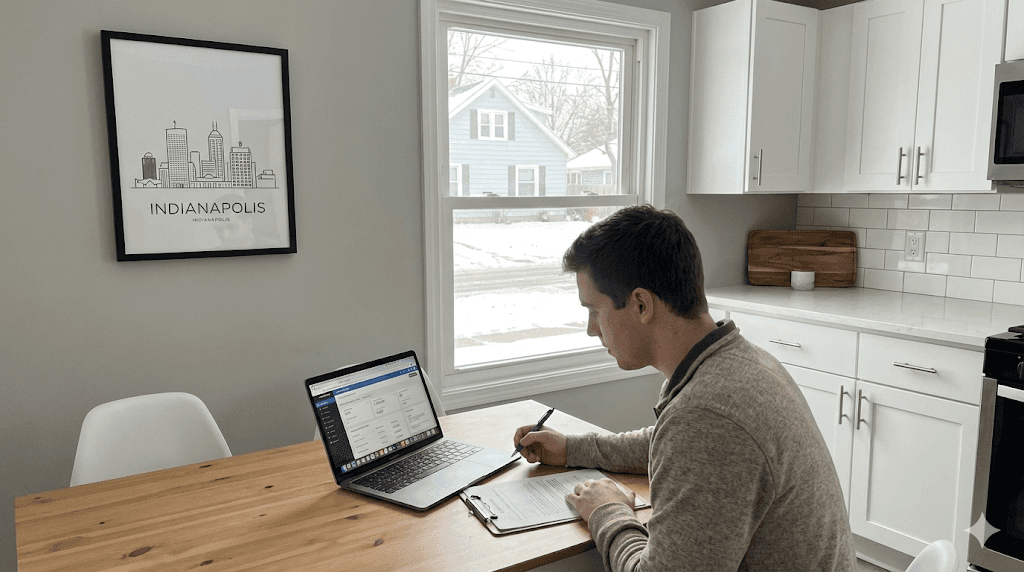Published: August 04, 2025
Thinking about investing in Indianapolis real estate in 2025? You’re not alone. Investors nationwide are eyeing the Circle City for its unique blend of affordabilitgrowth, and cash flow opportunities. In this guide, we break down the top neighborhoods, investor strategies, and insider insights you won’t get from a Google search — all pulled directly from our latest deep-dive YouTube episode.
—
TL;DR — Quick Take
Indianapolis is a "pockety" market — block-by-block value shifts, major redevelopment zones, and a wide variety of investor strategies (cash flow vs. appreciation). Where you buy depends entirely on your goals.
—
Cash Flow vs. Appreciation: What's Your Investor Identity?
Before we talk neighborhoods, let's get clear on your investment objective. At **Roots Realty Co.**, we work with two major investor types:
Cash Flow First: Want consistent monthly income? You'll be looking at undervalued areas with strong rent-to-price ratios.
Appreciation Seekers: Willing to take a lower yield today for long-term value growth? You’ll want areas seeing development, new businesses, and demographic shifts.
Indianapolis offers strong plays for both — but the right pocket matters.
—
Where to Buy in 2025: Neighborhood Picks by Strategy
🟢 Appreciation-Focused Areas
North Side Suburbs: Carmel, Westfield, Fishers, Noblesville — high-end schools, jobs, and development.
Established Urban Core: Chatham Arch, Bates-Hendricks, Garfield Park, Irvington.
Northern Indy (Midtown): Broad Ripple, Meridian-Kessler, Butler-Tarkington — “Beverly Hills of Indy.”
🟠 Cash Flow Zones
Near East & Near West Sides: Christian Park, Bean Creek, Haughville.
South Side: Around UIndy and Beech Grove.
Crown Hill, Mapleton-Fall Creek, Devington: Low entry cost, better ROI on rent.
🚨 Avoid red-flag zones unless you’re a seasoned investor. Class D areas (e.g., parts of Riverside or Martindale-Brightwood) can carry more risk and volatility.
—
Follow the Cranes: Development Signals
Want to buy before the boom hits? Look where the city’s putting money:
$470M Community Justice Center near Christian Park
New stadiums, grocery stores, and green space on the north and east sides
Roots Realty’s Investor Map shows every project: rootsrealty.co/resources
Smart investors buy close to growth — even if it's not obvious yet.
—
The Map That Changes Everything
One of our co-founders, Tyler, built a now-viral Indy Investor Map — already viewed 10,000+ times. It categorizes neighborhoods by investor grade (A to D), overlays development dots, and clearly shows where you should (and shouldn’t) be buying.
We had an out-of-state investor literally color in a road map with crayons based on Tyler’s insights. (Yes, really.)
—
Final Thoughts: Buy Smart, Buy Local, Buy with Roots
Indianapolis isn’t a cookie-cutter market. It’s block-by-block, pocket-by-pocket — and your success depends on knowing where to strike.
Whether you’re buying for cash flow, appreciation, or BRRRR strategy, Roots Realty Co. is your boots-on-the-ground, investor-first partner.
📩 Want help running numbers or picking a neighborhood?
Visit rootsrealty.co or reach out to schedule a 1:1 with one of our investor-friendly agents.
Let’s find your next cash-flowing door.








